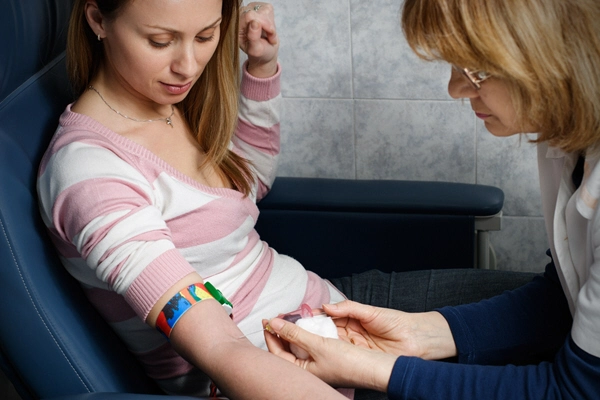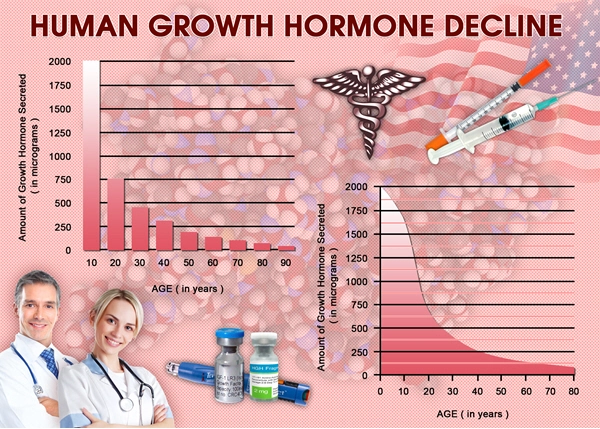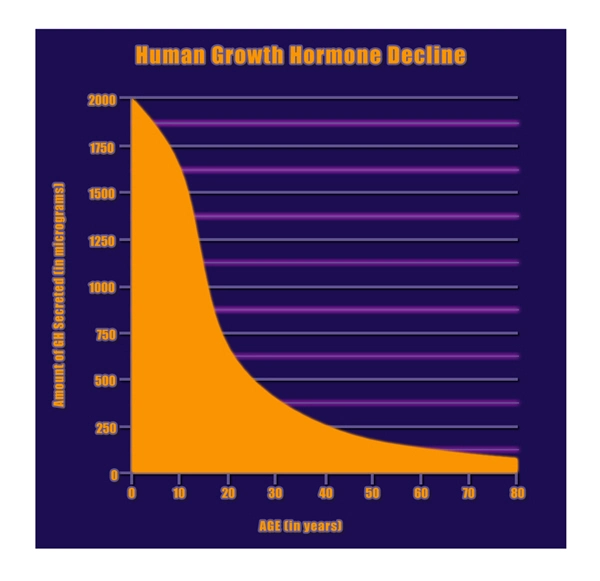Introduction to Penile Foreskin Health
The foreskin, a fold of skin covering the head of the penis, plays a significant role in male genital health. For American men, understanding the causes and symptoms of foreskin issues, as well as the available medical interventions, is crucial for maintaining optimal penile health. This article delves into the science behind common foreskin problems and offers guidance on managing these conditions effectively.
Causes of Foreskin Issues
Foreskin problems can arise from a variety of causes, ranging from congenital conditions to infections and poor hygiene. Phimosis, a condition where the foreskin cannot be retracted over the glans penis, is often congenital but can also develop later due to chronic infections or scarring. Paraphimosis, a medical emergency, occurs when the retracted foreskin cannot be returned to its original position, leading to potential tissue damage.
Infections such as balanitis, an inflammation of the glans penis, and balanoposthitis, which involves both the glans and foreskin, are frequently caused by poor hygiene or sexually transmitted infections (STIs). Yeast infections, bacterial infections, and viral infections like herpes can also affect the foreskin, leading to discomfort and potential complications.
Symptoms of Foreskin Problems
Recognizing the symptoms of foreskin issues is essential for timely intervention. Common symptoms include pain, swelling, redness, and difficulty retracting the foreskin. In cases of phimosis, men may experience tightness or pain when attempting to retract the foreskin. Paraphimosis presents with a swollen and painful glans, often with a tight band of foreskin behind the glans.
Infections may manifest as itching, a foul odor, discharge, and sores or ulcers on the foreskin. These symptoms can significantly impact quality of life and require prompt medical attention to prevent further complications.
Medical Interventions for Foreskin Issues
The approach to treating foreskin problems depends on the underlying cause and severity of the condition. For phimosis, non-surgical treatments such as topical steroids can be effective in loosening the foreskin. These medications work by reducing inflammation and allowing the foreskin to stretch more easily.
In cases where non-surgical treatments fail, circumcision, the surgical removal of the foreskin, may be recommended. Circumcision is also the primary treatment for paraphimosis, as it prevents recurrence and alleviates the immediate risk of tissue damage.
For infections, treatment typically involves antibiotics or antifungal medications, depending on the causative agent. Maintaining good hygiene practices, such as regular cleaning of the genital area, is crucial in preventing and managing infections. In cases of STIs, additional measures such as partner notification and treatment may be necessary.
Preventive Measures and Hygiene
Preventing foreskin issues involves adopting good hygiene practices and being aware of the signs of potential problems. Regular cleaning of the penis, especially under the foreskin, helps prevent the buildup of smegma, a substance that can lead to infections. Using mild soap and water, and ensuring the foreskin is returned to its normal position after cleaning, are simple yet effective preventive measures.
For men who engage in sexual activity, using condoms can reduce the risk of STIs, which can contribute to foreskin problems. Regular check-ups with a healthcare provider can also help in early detection and management of any emerging issues.
Conclusion
Understanding the causes, symptoms, and medical interventions for foreskin issues is vital for American males seeking to maintain optimal penile health. By recognizing the signs of common problems like phimosis, paraphimosis, and infections, and seeking timely medical care, men can effectively manage these conditions. Adopting preventive measures and maintaining good hygiene practices further contribute to overall genital health, ensuring a better quality of life.

- Navigating the Psychological Terrain of Penile Health: Insights for American Males [Last Updated On: February 21st, 2025] [Originally Added On: February 21st, 2025]
- Managing Penile Skin Conditions: Symptoms, Treatments, and Preventive Care for American Males [Last Updated On: February 22nd, 2025] [Originally Added On: February 22nd, 2025]
- Testosterone's Crucial Role in Male Penile Health and Sexual Function [Last Updated On: March 18th, 2025] [Originally Added On: March 18th, 2025]
- Genetics of Penile Development: Insights and Implications for American Male Health [Last Updated On: March 19th, 2025] [Originally Added On: March 19th, 2025]
- Optimal Penile Hygiene Practices for American Males: Health and Sexual Wellness Guide [Last Updated On: March 19th, 2025] [Originally Added On: March 19th, 2025]
- Penile Enlargement: Methods, Efficacy, Safety, and Psychological Impacts Explored [Last Updated On: March 19th, 2025] [Originally Added On: March 19th, 2025]
- Penile Trauma: Types, Emergency Care, and Long-term Management for American Males [Last Updated On: March 19th, 2025] [Originally Added On: March 19th, 2025]
- Penile Ulcers in American Males: Causes, Diagnosis, and Treatment Strategies [Last Updated On: March 19th, 2025] [Originally Added On: March 19th, 2025]
- Penile Nerve Blocks: Enhancing Pain Management and Surgery in American Males [Last Updated On: March 20th, 2025] [Originally Added On: March 20th, 2025]
- Obesity's Impact on Penile Health: Physiological and Psychological Effects on American Males [Last Updated On: March 20th, 2025] [Originally Added On: March 20th, 2025]
- Advancements in Penile Prostheses: Enhancing ED Treatment for American Males [Last Updated On: March 21st, 2025] [Originally Added On: March 21st, 2025]
- Penile MRI: Revolutionizing Diagnosis of Male Health Issues in America [Last Updated On: March 21st, 2025] [Originally Added On: March 21st, 2025]
- Penile Biopsy: Diagnosis, Procedure, and Impact for American Males [Last Updated On: March 21st, 2025] [Originally Added On: March 21st, 2025]
- Pharmacological Effects on Penile Function: Insights for American Males [Last Updated On: March 22nd, 2025] [Originally Added On: March 22nd, 2025]
- Hormonal Imbalances and Their Impact on Penile Health in American Males [Last Updated On: March 23rd, 2025] [Originally Added On: March 23rd, 2025]
- Dietary Impact on Penile Health: Nutrition for American Males' Vascular and Hormonal Balance [Last Updated On: March 23rd, 2025] [Originally Added On: March 23rd, 2025]
- Penile Sensory Neuropathy: Symptoms, Diagnosis, and Management Strategies for American Males [Last Updated On: March 23rd, 2025] [Originally Added On: March 23rd, 2025]
- Lifestyle Choices Impacting Penile Health: Diet, Exercise, and More for American Males [Last Updated On: March 23rd, 2025] [Originally Added On: March 23rd, 2025]
- Understanding Penile Vascular Health: Science, Prevention, and Treatment for American Males [Last Updated On: March 23rd, 2025] [Originally Added On: March 23rd, 2025]
- Penile Skin Grafts: Procedures, Recovery, and Outcomes for American Males [Last Updated On: March 23rd, 2025] [Originally Added On: March 23rd, 2025]
- Penile Ultrasound: Diagnosing Sexual Dysfunction in American Males [Last Updated On: March 23rd, 2025] [Originally Added On: March 23rd, 2025]
- Penile Nerve Health: Crucial for American Males' Sexual Function and Well-being [Last Updated On: March 23rd, 2025] [Originally Added On: March 23rd, 2025]
- Penile Lymphatic System: Functions, Disorders, and Health Maintenance for American Males [Last Updated On: March 23rd, 2025] [Originally Added On: March 23rd, 2025]
- Advancements in Penile Reconstruction: Techniques, Technologies, and Patient Outcomes [Last Updated On: March 24th, 2025] [Originally Added On: March 24th, 2025]
- Understanding and Managing Penile Allergies: Symptoms, Diagnosis, and Strategies [Last Updated On: March 24th, 2025] [Originally Added On: March 24th, 2025]
- Chemotherapy's Impact on Penile Health: Side Effects and Management Strategies [Last Updated On: March 24th, 2025] [Originally Added On: March 24th, 2025]
- Understanding and Managing Penile Swelling: Causes, Diagnosis, and Treatment for American Males [Last Updated On: March 24th, 2025] [Originally Added On: March 24th, 2025]
- Penile Warts: Causes, Symptoms, Diagnosis, and Treatment Options for American Males [Last Updated On: March 24th, 2025] [Originally Added On: March 24th, 2025]
- Penile Prosthetics: Effective Solution for Severe Erectile Dysfunction [Last Updated On: March 25th, 2025] [Originally Added On: March 25th, 2025]
- Understanding Penile Discharge: Causes, Symptoms, and Treatment Options for American Males [Last Updated On: March 25th, 2025] [Originally Added On: March 25th, 2025]
- Spinal Cord Injuries: Impact on Penile Function and Treatment Options for American Males [Last Updated On: March 25th, 2025] [Originally Added On: March 25th, 2025]
- Penile Veins: Anatomy, Function, and Disorders in American Males [Last Updated On: March 25th, 2025] [Originally Added On: March 25th, 2025]
- Penile Girth's Impact on Sexual Satisfaction: Medical Insights and Psychological Effects [Last Updated On: March 25th, 2025] [Originally Added On: March 25th, 2025]
- Exploring Penile Sensitivity: Impact on Male Sexual Health and Well-being [Last Updated On: March 25th, 2025] [Originally Added On: March 25th, 2025]
- Understanding Penile Discoloration: Causes, Symptoms, and Treatment Options for American Males [Last Updated On: March 25th, 2025] [Originally Added On: March 25th, 2025]
- Neurological Disorders and Penile Function: Impacts and Management Strategies for American Males [Last Updated On: March 25th, 2025] [Originally Added On: March 25th, 2025]
- Understanding Penile Lesions: Types, Causes, and Effective Treatments for American Males [Last Updated On: March 25th, 2025] [Originally Added On: March 25th, 2025]
- Penile Arteries: Key to Erection Health and Cardiovascular Wellness in American Males [Last Updated On: March 26th, 2025] [Originally Added On: March 26th, 2025]
- Understanding Penile Bleeding: Causes, Symptoms, and Emergency Care for American Males [Last Updated On: March 26th, 2025] [Originally Added On: March 26th, 2025]
- Understanding Penile Numbness: Causes, Diagnosis, and Treatment Strategies [Last Updated On: March 26th, 2025] [Originally Added On: March 26th, 2025]
- Radiation Therapy's Impact on Penile Health: Effects, Management, and Recovery Strategies [Last Updated On: March 27th, 2025] [Originally Added On: March 27th, 2025]
- Penile Health: Enhancing Life Quality Through Physical, Mental, and Relational Well-being [Last Updated On: March 27th, 2025] [Originally Added On: March 27th, 2025]
- Chronic Diseases' Impact on Penile Health: Diabetes, Heart Disease, Obesity Effects [Last Updated On: March 27th, 2025] [Originally Added On: March 27th, 2025]
- Understanding Penile Sores: Causes, Symptoms, and Treatments for American Males [Last Updated On: March 28th, 2025] [Originally Added On: March 28th, 2025]
- Penile Health and Fertility: Understanding the Vital Connection [Last Updated On: March 28th, 2025] [Originally Added On: March 28th, 2025]
- Understanding and Managing Penile Itching: Causes, Symptoms, and Treatment Options [Last Updated On: March 28th, 2025] [Originally Added On: March 28th, 2025]
- Understanding and Treating Penile Rash: A Guide for American Men [Last Updated On: March 28th, 2025] [Originally Added On: March 28th, 2025]
- Understanding and Managing Penile Pain: Causes, Diagnosis, and Treatment for American Men [Last Updated On: March 28th, 2025] [Originally Added On: March 28th, 2025]
- Penile Injuries: Types, Impacts on Sexual Function, and Prevention Strategies [Last Updated On: March 29th, 2025] [Originally Added On: March 29th, 2025]
- Penile Blood Tests: Diagnosing Systemic Diseases in Men [Last Updated On: March 29th, 2025] [Originally Added On: March 29th, 2025]
- Penile Piercings: Health Risks, Benefits, and Informed Decision-Making for American Males [Last Updated On: March 29th, 2025] [Originally Added On: March 29th, 2025]
- Understanding Penile Lumps: Types, Causes, and Management for American Males [Last Updated On: March 29th, 2025] [Originally Added On: March 29th, 2025]
- Understanding Penile Edema: Causes, Diagnosis, and Treatment Strategies for American Males [Last Updated On: March 31st, 2025] [Originally Added On: March 31st, 2025]
- Penile Health and Mental Well-being: A Comprehensive Analysis for American Males [Last Updated On: April 1st, 2025] [Originally Added On: April 1st, 2025]
- Understanding and Managing Penile Redness: Causes, Symptoms, and Treatments [Last Updated On: April 1st, 2025] [Originally Added On: April 1st, 2025]
- Penile Dermatitis: Symptoms, Causes, and Management Strategies for American Males [Last Updated On: April 1st, 2025] [Originally Added On: April 1st, 2025]
- Penile Health: Enhancing Partner Sexual Satisfaction for American Males [Last Updated On: April 1st, 2025] [Originally Added On: April 1st, 2025]
- Penile Health and STI Prevention: A Comprehensive Guide for American Males [Last Updated On: April 6th, 2025] [Originally Added On: April 6th, 2025]
- Managing Penile Dryness: Causes, Symptoms, and Dermatological Treatments for American Males [Last Updated On: April 7th, 2025] [Originally Added On: April 7th, 2025]
- Understanding Penile Blisters: Causes, Symptoms, and Treatment for American Males [Last Updated On: April 7th, 2025] [Originally Added On: April 7th, 2025]
- Penile Health Impacts on Urinary Function: Insights from Recent Urological Study [Last Updated On: April 7th, 2025] [Originally Added On: April 7th, 2025]
- Causes, Diagnosis, and Management of Penile Burning in American Males [Last Updated On: April 9th, 2025] [Originally Added On: April 9th, 2025]
- Penile Sensitivity Disorders: Causes, Diagnosis, and Treatment for American Males [Last Updated On: April 10th, 2025] [Originally Added On: April 10th, 2025]
- Penile Health's Crucial Role in American Male Reproductive Wellness [Last Updated On: April 11th, 2025] [Originally Added On: April 11th, 2025]
- Understanding the Link Between Penile Health and Prostate Wellness in Men [Last Updated On: April 12th, 2025] [Originally Added On: April 12th, 2025]
- Managing Penile Odor: Causes, Symptoms, and Effective Treatments for American Males [Last Updated On: April 12th, 2025] [Originally Added On: April 12th, 2025]
- Penile Health and Hormonal Balance: A Comprehensive Guide for American Males [Last Updated On: April 13th, 2025] [Originally Added On: April 13th, 2025]
- Penile Health as a Cardiovascular Indicator: Insights from a 5-Year Study on American Males [Last Updated On: April 13th, 2025] [Originally Added On: April 13th, 2025]



List of USA state clinics - click a flag below for blood testing clinics.
Word Count: 585



















































